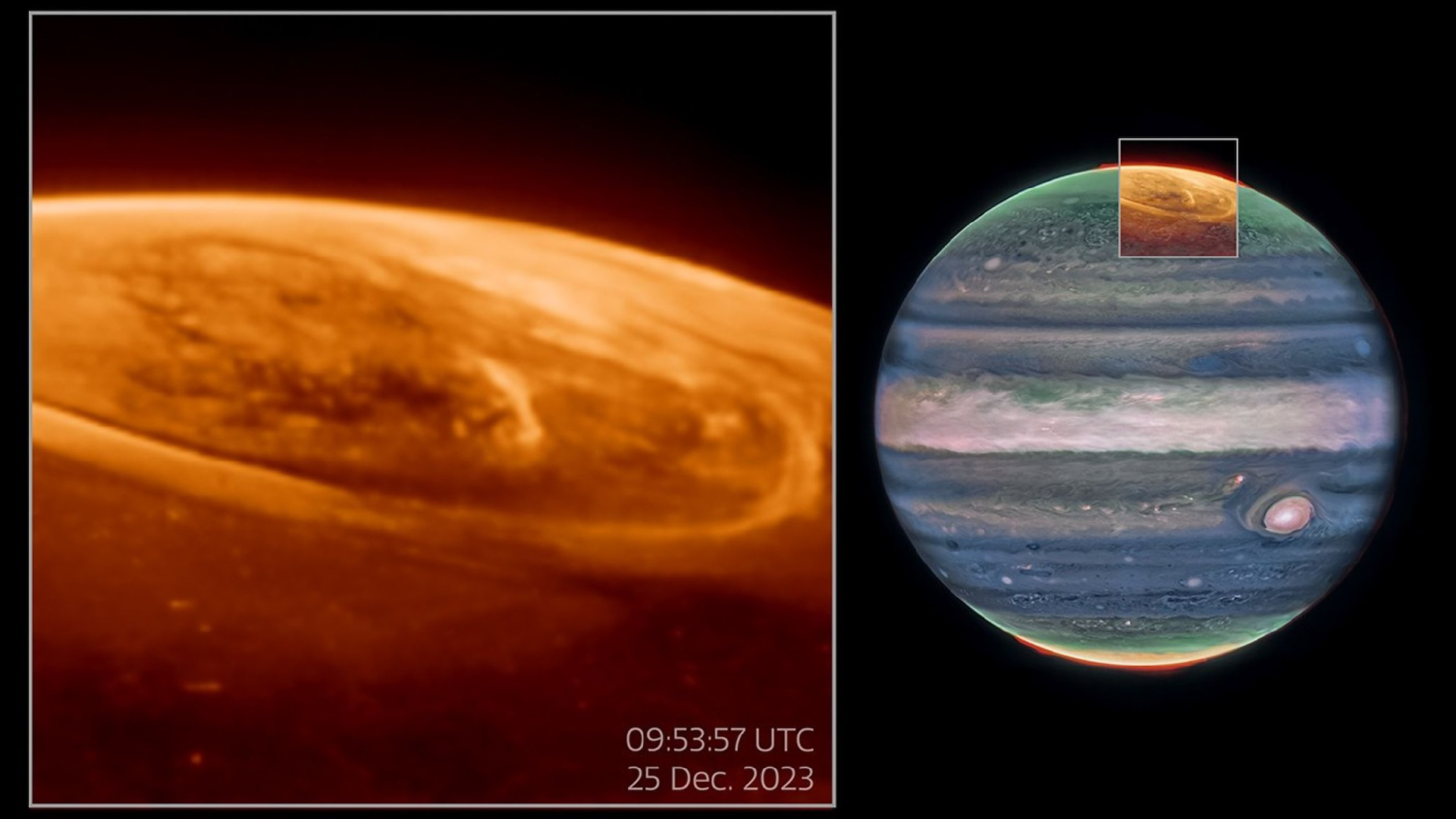
On Christmas Day in 2023, scientists trained the James Webb Space Telescope (JWST) on Jupiter’s auroras and captured a dazzling light show.
The researchers observed rapidly-changing features in Jupiter’s vast auroras using JWST’s infrared cameras. The findings could help explain how Jupiter’s atmosphere is heated and cooled, according to a study published May 12 in Nature Communications.
“What a Christmas present it was — it just blew me away!” study coauthor Jonathan Nichols, a researcher studying auroras at the University of Leicester in the UK, said in a statement. “We wanted to see how quickly the auroras change, expecting them to fade in and out ponderously, perhaps over a quarter of an hour or so. Instead, we observed the whole auroral region fizzing and popping with light, sometimes varying by the second.”
Auroras form when high-energy charged particles, often released from the sun, slam into gases in a planet’s atmosphere, causing the gas to glow. Jupiter’s strong magnetic field scoops up charged particles such as electrons from the solar wind — and from eruptions on its highly volcanic moon Io — and sends them hurtling toward the planet’s poles, where they put on a spectacle hundreds of times brighter than Earth’s Northern Lights.
Related: NASA reveals ‘glass-smooth lake of cooling lava’ on surface of Jupiter’s moon Io
In the new study, the team looked closely at infrared light emitted by the trihydrogen cation, H3+. This molecule forms in Jupiter’s auroras when energetic electrons meet hydrogen in the planet’s atmosphere. Its infrared emission sends heat out of Jupiter’s atmosphere, but the molecule can also be destroyed by fast-moving electrons. To date, no ground-based telescopes have been sensitive enough to determine exactly how long H3+ sticks around.
But by using JWST’s Near Infrared Camera, the team observed H3+ emissions that varied more than they expected. They found that H3+ lasts about two and a half minutes in Jupiter’s atmosphere before being destroyed. That could help scientists tease out how much of an effect H3+ has on cooling Jupiter’s atmosphere.
But the scientists don’t have the full picture yet. They also found some puzzling data when they turned the Hubble Space Telescope toward Jupiter at the same time. Hubble captured the ultraviolet light coming from the auroras, while JWST captured infrared light.
“Bizarrely, the brightest light observed by Webb had no real counterpart in Hubble’s pictures,” Nichols said in the statement. “This has left us scratching our heads. In order to cause the combination of brightness seen by both Webb and Hubble, we need to have a combination of high quantities of very low-energy particles hitting the atmosphere, which was previously thought to be impossible. We still don’t understand how this happens.”
In future work, the researchers plan to study the source of this unexpected pattern using additional JWST data as well as observations from NASA’s Juno spacecraft, which has been observing Jupiter from orbit since 2016.
